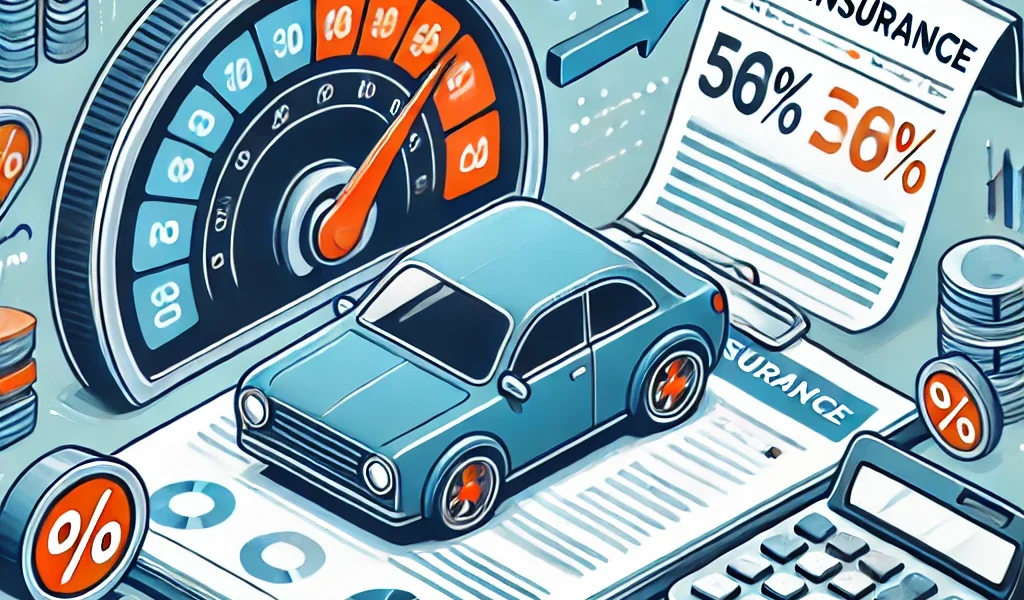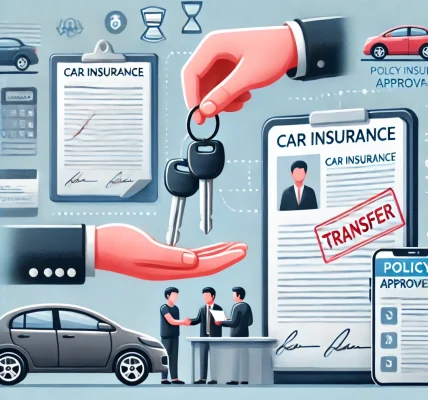When applying for car insurance, many factors influence the premium you pay. While driving history, age, and location are commonly known considerations, one often-overlooked factor is your credit score. Insurance providers in many regions use credit-based insurance scores to assess risk and determine premium rates.
Understanding how your credit score impacts car insurance rates and learning how to improve it can help you save significantly on premiums. This article explores the connection between credit scores and car insurance, why insurers consider them, and actionable tips to enhance your credit rating.
How Credit Score Affects Your Car Insurance Rates
1. What is a Credit-Based Insurance Score?
A credit-based insurance score (CBIS) is a numerical representation of an individual’s creditworthiness, designed to predict the likelihood of filing an insurance claim. Insurers use this score alongside other risk factors to determine policy premiums.
Unlike a traditional credit score (used by lenders for loans and credit cards), a CBIS is specifically tailored to assess insurance risk. Though they share similarities, the models used for calculation differ slightly.
2. Why Do Insurance Companies Use Credit Scores?
Insurance providers use credit scores as part of their risk assessment because studies have shown a correlation between lower credit scores and a higher likelihood of filing claims. Here’s why:
- Financial Responsibility: A higher credit score suggests that a person is more financially responsible, meaning they are less likely to file claims or default on payments.
- Predicting Risk: Data analytics indicate that individuals with poor credit scores tend to file more insurance claims, leading to increased costs for insurers.
- Regulatory Approval: In some regions, regulators allow insurers to use credit scores as one of the determining factors for setting premiums.
3. How Much Can Your Credit Score Impact Your Premium?
The effect of a credit score on car insurance rates varies by location and insurer. However, studies have shown that drivers with low credit scores may pay up to 50-100% more for car insurance compared to those with excellent credit. This price difference can result in hundreds or even thousands of dollars in extra premium costs per year.
4. Where is Credit Score-Based Pricing Used?
In the United States, most states allow the use of credit scores in determining insurance premiums, except for California, Hawaii, Massachusetts, and Michigan, where it is prohibited. In Canada, some provinces restrict or regulate this practice, while in the UK and other parts of the world, insurers primarily focus on driving records and other factors.
How to Improve Your Credit Score to Lower Insurance Rates
Since a poor credit score can lead to higher car insurance premiums, improving it can significantly reduce your financial burden. Below are actionable steps to enhance your credit rating:
1. Pay Your Bills on Time
- Timely payments on loans, credit cards, and other financial obligations improve your credit score.
- Set up automatic payments or reminders to avoid late fees.
2. Reduce Credit Card Balances
- Keep your credit utilization below 30% of your total available credit limit.
- Paying down high balances reduces your debt-to-credit ratio, improving your score.
3. Avoid Opening Too Many New Credit Accounts
- Each credit inquiry can lower your score slightly, so only apply for new credit when necessary.
- Hard inquiries (such as applying for loans) impact your score more than soft inquiries (such as checking your own credit).
4. Maintain Old Credit Accounts
- The length of your credit history matters. Closing old credit card accounts can reduce your overall credit age, negatively impacting your score.
- If an old card is not in use, keep it open and make occasional small purchases to maintain activity.
5. Check Your Credit Report for Errors
- Regularly review your credit report for inaccuracies or fraudulent activity.
- Dispute incorrect information with the credit bureau to have it corrected.
6. Diversify Your Credit Mix
- A mix of credit types (credit cards, installment loans, retail accounts, etc.) can improve your score.
- However, avoid taking on debt solely for the sake of credit diversity.
7. Settle Outstanding Debts
- Pay off collections and overdue debts to improve your creditworthiness.
- Negotiating a settlement or payment plan can help remove negative marks from your credit history.
8. Limit Hard Credit Inquiries
- Each hard inquiry (e.g., applying for a car loan) stays on your credit report for two years and may slightly lower your score.
- Be strategic about when and how often you apply for credit.
Other Ways to Lower Your Car Insurance Premiums
Even if your credit score isn’t perfect, you can still take steps to reduce your car insurance costs:
1. Shop Around for Better Rates
- Compare quotes from multiple insurance providers to find the best deal.
- Some insurers weigh credit scores differently, so shopping around can help find an affordable option.
2. Bundle Insurance Policies
- Purchasing multiple policies (e.g., home and auto insurance) from the same provider can lead to discounts.
3. Increase Your Deductible
- Opting for a higher deductible lowers your premium, though you’ll pay more out of pocket in case of a claim.
4. Take Advantage of Discounts
- Look for discounts like good driver, low mileage, student discounts, and safety feature-based reductions.
- Ask your insurer about eligibility for any available discounts.
5. Maintain a Clean Driving Record
- Safe driving habits result in fewer claims, helping lower your premiums over time.
6. Reduce Coverage on Older Cars
- If your car is older and has depreciated significantly, consider dropping comprehensive or collision coverage to reduce costs.
Final Thoughts
Your credit score plays a significant role in determining your car insurance premiums. A higher score can lead to lower rates, while a poor credit history can result in costly premiums. Understanding how insurers use credit scores and taking proactive steps to improve your credit can save you money in the long run.
By maintaining financial responsibility, reducing debt, and monitoring your credit, you can ensure that you get the most affordable car insurance rates possible.
🚗💰 Start improving your credit today and enjoy better insurance premiums!




